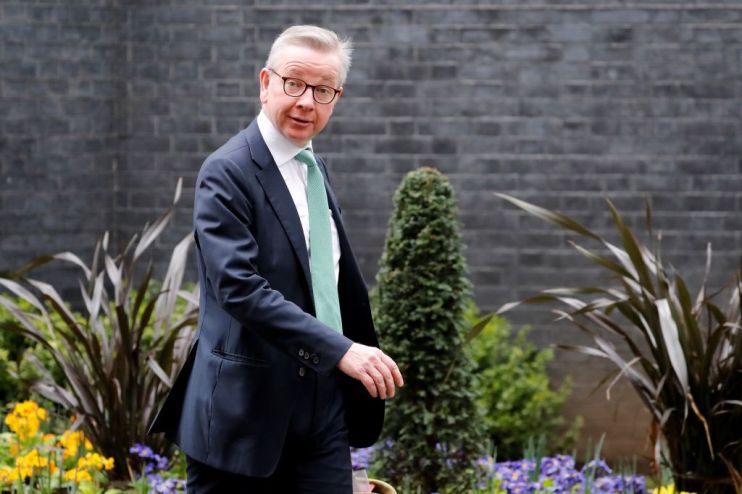Michael Gove: Brexit deal can be struck if EU loses its ‘ideological fastness’

Michael Gove has said a zero tariff, zero quota trade deal can be done with the EU if its negotiators shed their “ideological fastness” during talks.
The Cabinet Office Minister updated MPs today on Brexit trade negotiations, claiming the EU “wants us to obey the rules of their club, essentially, even though we are no longer members”.
The two sides completed the third round of negotiations on Friday, with chief UK negotiator David Frost warning the two sides were still far apart on several contentious issues.
Frost expressed his dismay that EU negotiators have not moved on the issue of EU access to UK fishing waters and business competition regulations.
UK negotiators are also unhappy that the EU is asking for an overarching governance arrangement for the deal that is overseen by the European Court of Justice.
Senior members of the UK negotiating team have briefed the British press that a deal will not get done if there is no movement on these areas by next month when both sides take a break to monitor progress.
The deadline to ratify a free trade deal is 31 December, with trade barriers immediately erected if the two sides cannot come to an agreement.
Gove echoed Frost’s frustrations today in the House of Commons.
“The EU wants us to obey the rules of their club, essentially, even though we are no longer members and they want the same access to our fishing grounds they currently enjoy while restricting our access to their markets,” he said.
“It remains difficult to reach a mutually beneficial agreement while the EU maintains such an ideological approach. What we believe is that an agreement is possible if flexibility is shown and the agreements we seek are built on the precedence of the agreements the EU has reached with other sovereign nations.
“We believe it is the case that flexibility on the part of the European Union is in the interest of all and provided they move away from their current ideological fastness then we can secure the process we need.”
Brussels is demanding to maintain the same fishing access to British waters for its member states as when the UK was in the EU.
The EU is also demanding the UK signs up to a so-called level playing field of regulations to ensure British businesses do not have a long-term competitive advantage.
In return, the UK would be able to trade with the EU on a zero-tariff basis.
However, Frost has said the position of the EU on these two areas is not tenable.
After the recent round of negotiations, EU chief negotiator Michel Barnier said: “With the exception of some modest overtures, we failed to make any progress on any of the other more difficult topics.
“The United Kingdom did not engage in a real discussion on the question of the level playing field – those economic and commercial ‘fair play’ rules that we agreed to, with Boris Johnson, in the political declaration.
“But despite this, we remain determined to build a new and ambitious partnership with the United Kingdom, in the very short time that is available if the United Kingdom is to confirm its decision not to request an extension of this negotiation – as an extension of one or two years remains possible by joint agreement.”